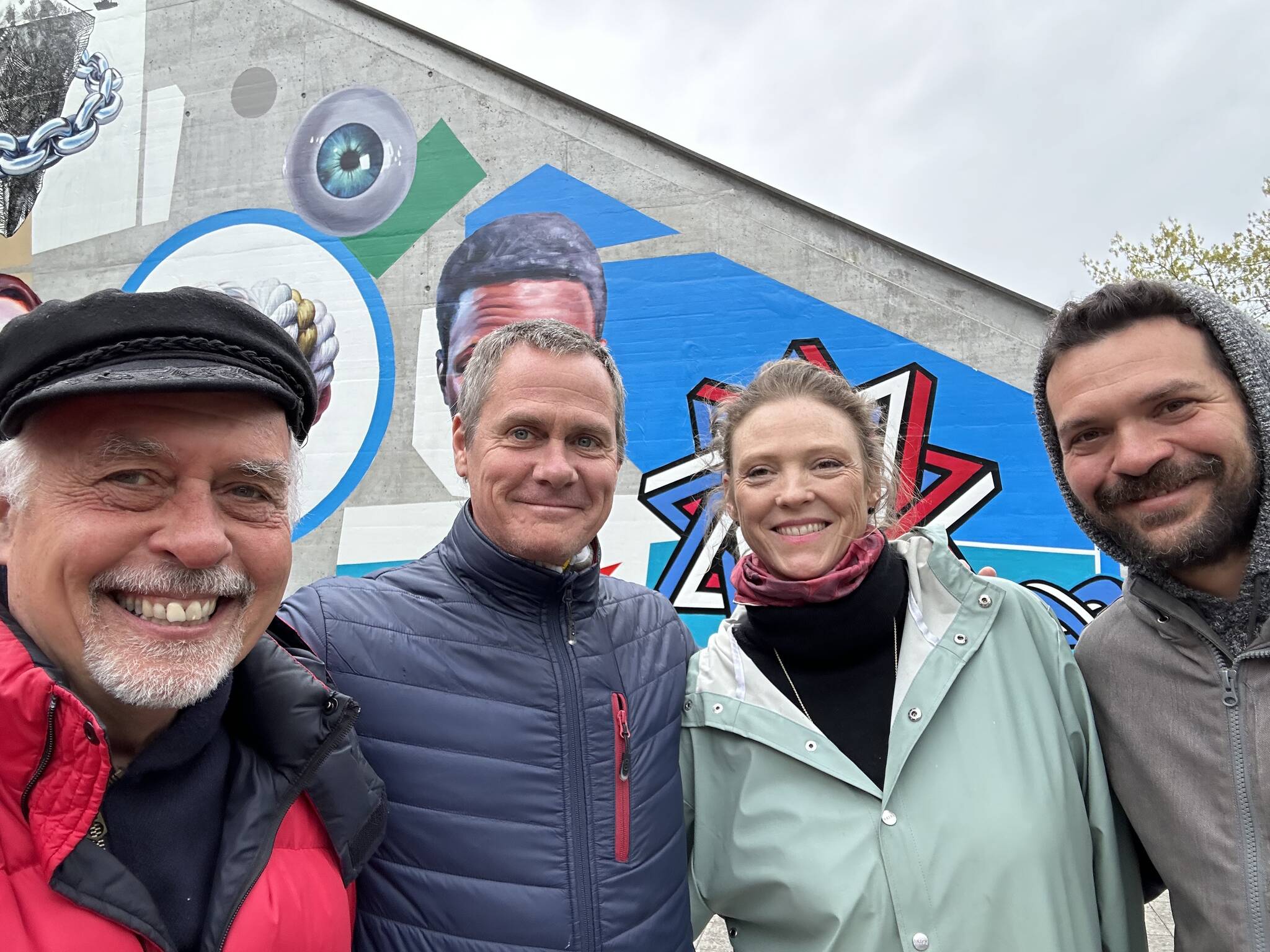Walking through the medieval town of Luzern has become a daily ritual. My wife and I are averaging five miles a day taking in all the fascinating sights. On one such recent sojourn I happened upon a half-completed mural at a pedestrian bridge leading to the walled city. Seeing the artist, I stopped to chat. To my amazement, he was an American from Chicago.
I smiled as I told Jeff Zimmermann that my wife and I had raised our three daughters in suburban Chicago. I explained why we were currently in Switzerland. He told me that he had been chosen by a committee to help commemorate the 25th anniversary of the Sister City relationship between Chicago and Luzern. Quite appropriately a bridge was identified as the “canvas” on which the artwork connecting two cities would be painted.
Together Jeff and I examined his part of the project, one wall on one side of the bridge. Since our family was living in Chicagoland during the time the two cities first “joined hands,” I felt a kindred connection.
A few days later I met Marco and Vero Schmid, artists from Luzern, who were painting the wall on the other side of the bridge. Because they were influenced by time spent in Queens, New York, the duo called themselves Queen Kong. Amazingly, I discovered Marco studied with one of the teachers in the International Church where I am currently serving as the interim pastor. I, too, felt a connection to them. Seeing Marco and Vero’s art celebrating Chicago on their side of the bridge brought a smile to my face.
Meeting Jeff, Marco and Vero helped me to realize that in the brief time in Luzern I have been continuously building bridges with strangers. Furthermore, it has reminded me that bridge building is a key component of my calling as a Christian pastor. And as a person of the cloth, I’ve come to see that bridges matter much more than walls.
For the past two decades my wife and I have lived on an island in the middle of Lake Washington. We are connected to Seattle and Bellevue by two bridges. Those bridges are our lifeline. Without them, we would be isolated and insulated. Without bridges, we would be deprived of our potential.
As I’ve reflected on life with bridges and life without them, I’ve realized that too much of my earlier life was invested in constructing walls instead of building bridges. Concerned that I would be adversely affected by values and perspectives that were at odds with my worldview, I consistently walled myself off from those who saw God and others differently than I.
Citing a verse in the Bible that talked about “coming apart from the world and being separate,” I buttressed my rationale for remaining at a distance. As a result, I failed to earn the right to be taken seriously by those with whom I hoped to share my faith. In the process, I projected a “holier than thou” attitude that undermined my desires.
When I became a chaplain ten years ago, I was charged by my job description to provide spiritual nurture and care to people of various backgrounds. I began to build more bridges while dismantling bricks that separated from unnecessary walls. As I did I recognized the Pharisee-like tendencies of my youth. Gratefully, I saw how easy it was to extend a hand of friendship and love as did the first century carpenter-turned-rabbi whom I follow.
As you likely know, phileo is one of the Greek words for love found in the New Testament. It is a brotherly kind of love. It is the word from which Philadelphia derives its name. It is a love that esteems the value of the other. The Sister Cities concept is an attempt to intentionally build phileo relationships between municipalities. It is a great concept.
And to that end, I am determined to increasingly establish phileo friendships with those in my sphere of influence including those with whom I differ about religion, politics and culture. Care to join me?
Guest columnist Greg Asimakoupoulos is a former chaplain at Covenant Living at the Shores in Mercer Island.



